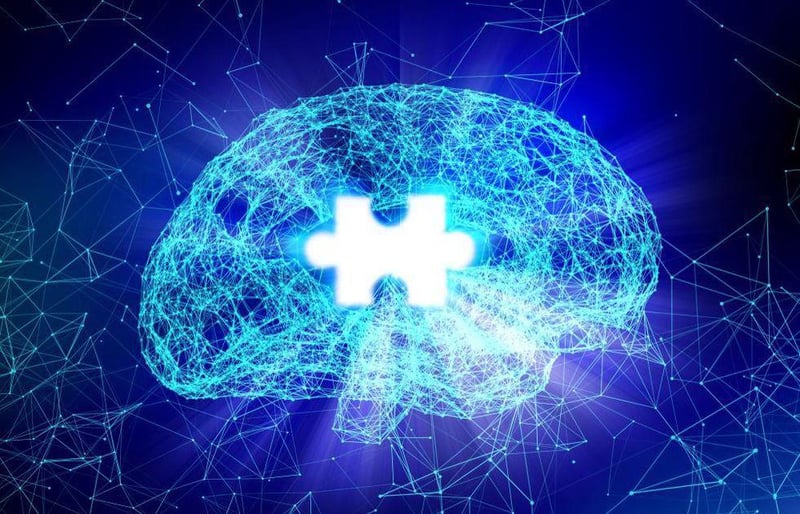Get Healthy!
174 Results for search "Memory Problems".
Health News Results - 174
Imagine a closet filled with treasures accumulated during a lifetime of rich experiences. Now, imagine going into that closet to find one specific object.
Only maybe you get distracted by another, more enticing item from your past. Or you find the object you're seeking but it's intertwined with six similar items, and withdrawing the one will drag out the entire tangle.
That's how an...
- |
- February 11, 2022
- |
- Full Page
Your heart and brain may often seem at odds, but they have more in common than you think. A new study shows that a heart attack can lead to faster mental decline over the years.
"We need to realize that what's going on in the heart and brain are...
- Robert Preidt
- |
- February 4, 2022
- |
- Full Page
Worried about losing your mental faculties as you age? Get out there and exercise, new research suggests.
Physical activity helps keep the aging brain sharp, according to the latest of many studies showing a link between exercise and brain health.
This study included 90 adults, ages 50-74, who wore devices to measure their levels of
People hospitalized for COVID-19 are not necessarily out of the woods once they're discharged: Many land in the hospital again in the months afterward, a large U.K. study finds.
The researchers found that in the 10 months after leaving the hospital, COVID-19 patients were more than twice as likely to be hospitalized or die, compared to the general population. And even compared with people...
- Amy Norton HealthDay Reporter
- |
- January 26, 2022
- |
- Full Page
Older adults who maintain a steady weight as they age are less likely to experience rapid cognitive decline, regardless of how much they weigh to start, new research suggests.
"There's something about maintaining weight and BMI that seems to reflect some health resilience," said study author Michal Schnaider Beeri, a professor of psychiatry at Icahn Mount Sinai in New York City. (BMI is an es...
- Denise Mann HealthDay Reporter
- |
- January 25, 2022
- |
- Full Page
Brain fog. It has become an inexplicable side effect of COVID-19 infection, but researchers now report they have discovered a possible reason why it happens.
- Robert Preidt
- |
- January 20, 2022
- |
- Full Page
It's a move that could severely limit the number of people taking the controversial new Alzheimer's drug Aduhelm: Medicare on Tuesday proposed to only cover the cost of the pricey medication for people enrolled in approved clinical trials.
A final decision on coverage is expected later this year.
The drug costs $28,200 per year, but that cost will only be covered for participants ...
- Ernie Mundell and Dennis Thompson HealthDay Reporters
- |
- January 11, 2022
- |
- Full Page
Exercise helps you stay fit, hale and hearty, and researchers say it may also help you stave off dementia and Alzheimer's disease. Now they have a better understanding of the hidden benefits that aid the brain.
Older folks who are more physically active have higher levels of a protein that promotes better communication between the brain's synapses, a new study reports.
"Synapses are...
- Dennis Thompson HealthDay Reporter
- |
- January 10, 2022
- |
- Full Page
Following a months-long and unprecedented review, Medicare officials expect to announce within the next couple of weeks whether the program will cover the controversial Alzheimer's drug Aduhelm. The drug's benefits are in question and its annual price tag tops $28,000.
The U.S. Centers for Medicare and Medicaid Services (CMS) tend to cover with little fanfare most drugs approved by its si...
- Dennis Thompson HealthDay Reporter
- |
- January 7, 2022
- |
- Full Page
The percentage of older Americans reporting serious problems with memory and thinking has declined in recent years -- and higher education levels may be part of the reason, a new study finds.
Researchers found that between 2008 and 2017, the proportion of older U.S. adults reporting...
- Amy Norton HealthDay Reporter
- |
- December 30, 2021
- |
- Full Page
Long-term workplace exposure to formaldehyde may prompt thinking and memory problems later in life, new research suggests.
Formaldehyde is a gas used in making wood and chemical products and plastics.
"We know that exposure to formaldehyde has been linked to certain cancers, and our results sugge...
- Robert Preidt
- |
- December 23, 2021
- |
- Full Page
A diagnosis of mild cognitive impairment (MCI) might worry an older adult, who could see it as a stepping stone to dementia. But a new study suggests one does not necessarily lead to the other.
In fact, nearly half of seniors tracked in the study -- all of who had been diagnosed with issues in memory and thinking and received an MCI diagnosis -- no longer had the condition a few years lat...
- Cara Murez HealthDay Reporter
- |
- December 2, 2021
- |
- Full Page
Seniors, looking for a way to stay mentally quick and physically strong? Start scrubbing.
Researchers from Singapore say housework may be a key to keeping your brain sharp as you age.
Their new study found that in older adults, cleaning house was tied to a better memory and attention span, a...
- Steven Reinberg HealthDay Reporter
- |
- November 23, 2021
- |
- Full Page
Low-dose aspirin neither reduces nor increases the risk of dementia in adults with type 2 diabetes, a new study finds.
"This is reassuring that an increase in the risk of dementia is unlikely for the millions of people worldwide who regularly take aspirin to protect against the risk of heart attack and stroke," according to study author Jane Armitage, of the University of Oxford in Englan...
- Robert Preidt
- |
- November 19, 2021
- |
- Full Page
Despite stereotypes about seniors and technology, a small study suggests that older adults in the early stages of dementia can use smartphone apps as memory aids.
The researchers found that older people with mild impairments in memory and thinking were not only able to learn how to use the apps, they said the digital aids made their daily lives easier.
The apps were not specially de...
- Amy Norton HealthDay Reporter
- |
- November 18, 2021
- |
- Full Page
Eating lots of fruits, veggies, beans and other foods with inflammation-cooling properties may lower your odds of developing dementia as you age.
But, if your diet is loaded with pro-inflammatory foods, you may be up to three times more likely to experience memory loss and issues with language, problem-solving and other thinking skills as you age, new research suggests.
"A less infl...
- Denise Mann HealthDay Reporter
- |
- November 11, 2021
- |
- Full Page
Multiple sclerosis patients might be able to think more clearly and move more easily if they regularly undergo whole-body vibration training, a new pilot study reports.
A small group of MS patients who experienced vibration training showed improvements in decision making, information processing, attention and memory, according to find...
- Dennis Thompson HealthDay Reporter
- |
- November 11, 2021
- |
- Full Page
Might breastfeeding affect a new mother's future brain health?
That's the intriguing question posed by a new study that flips the narrative from the often-touted benefits for baby to what impact breastfeeding might hold for Mom years later.
Researchers from UCLA Health found that women over age 50 who had breastfed their babies performed better on tests of brain function than those ...
- Cara Murez HealthDay Reporter
- |
- October 28, 2021
- |
- Full Page
Patients suffering from "long COVID" can have symptoms that last a year or more, putting their jobs and everyday routines in jeopardy, a new study finds.
Looking at more than 150 people with long-lasting effects from COVID-19, researchers said the patients reported thinking problems, fatigue, brain fog, headache, sleep problems and dizziness.
"The majority of people who we studied h...
- Steven Reinberg HealthDay Reporter
- |
- October 27, 2021
- |
- Full Page
Even months after beating COVID-19, many people still suffer memory lapses, difficulty concentrating and other symptoms of "brain fog," a new study shows.
Researchers found that such symptoms were prevalent seven months after a COVID diagnosis -- in both patients who'd been severely ill and hospitalized, and in those who'd managed a mild case at home.
Along with the endurance of the...
- Amy Norton HealthDay Reporter
- |
- October 25, 2021
- |
- Full Page
Help in retaining mental function when you age could be only a few keystrokes away.
While crosswords and exercise are often touted as ways to retain thinking skills, U.K. investigators found that the internet may also help seniors stay sharp in retirement.
Those who used the internet more after their careers ended had substantially higher scores on cognitive, or thinking, tests, acc...
- Cara Murez HealthDay Reporter
- |
- September 27, 2021
- |
- Full Page
Certain changes in a part of the brain stem, visible in scans, might be a potential early indicator of Alzheimer's disease, a new study suggests.
Using different brain imaging techniques, researchers found that lesser "integrity" in the brain stem region was linked to a faster decline in memory and thinking in older adults, as well as certain brain changes seen in early Alzheimer's.
- Amy Norton HealthDay Reporter
- |
- September 23, 2021
- |
- Full Page
It's fair to say most bosses want their employees to have high productivity.
Unfortunately, the air that office workers breathe may put a damper on quick thinking and fast work.
A new study found increased concentrations of fine particulate matter, called PM2.5, and lower ventilation rates were linked to slower response times and reduced accuracy.
"PM2.5 is a very nasty pollut...
- Cara Murez HealthDay Reporter
- |
- September 14, 2021
- |
- Full Page
Early retirement may sound appealing, but a recent study hints that putting it off a few years might help older adults retain more of their mental sharpness.
Using data on more than 20,000 older Americans, researchers estimated that if all of those people waited until age 67 to retire, their collective cognitive health would benefit.
"Cognition" refers to a person's ability to think...
- Amy Norton HealthDay Reporter
- |
- September 7, 2021
- |
- Full Page
For breast cancer patients battling "chemo brain," regular exercise may be a powerful prescription, a new study suggests.
The term "chemo brain" refers to thinking and memory problems often experienced by patients who undergo chemotherapy.
It's "a growing clinical concern," said study first author Elizabeth Salerno, an assistant professor of surgery at Washington University School o...
- Robert Preidt
- |
- August 25, 2021
- |
- Full Page
There's an old saying, "Age and guile beat youth and exuberance," and new research suggests there might be something to that.
Some key brain functions can improve in people as they age, researchers report, challenging the notion that our mental abilities decline across the board as we grow old.
With increasing age, many people appear to get better at focusing on important matters an...
- Dennis Thompson HealthDay Reporter
- |
- August 19, 2021
- |
- Full Page
Something as simple as having a glass of orange juice in the morning or an apple at lunch could be one of the keys to protecting your brain health.
People who consumed just a half serving a day of foods high in a naturally occurring compound called flavonoids had a 20% lower risk of mental decline, according to a new study.
"We think it may have important public health i...
- Cara Murez HealthDay Reporter
- |
- July 29, 2021
- |
- Full Page
An active mind in old age may delay Alzheimer's disease by up to five years, a new study suggests.
Activities like reading, writing letters, playing cards or doing puzzles may prolong brain health even for those in their 80s, researchers say.
"The key element is that you're processing information," said lead researcher Robert Wilson, a professor in the neurological sciences departme...
- Steven Reinberg
- |
- July 15, 2021
- |
- Full Page
Alzheimer's disease has no cure, but one expert says it may be possible to reduce the risks of developing the disease with healthy lifestyle changes.
There are two different types of Alzheimer's. Early-onset typically affects patients before age 65. Late-onset affects older adults.
"Early-onset dementia often is linked to genetics and can run in families," said Dr. Chen Zhao, a neur...
- Cara Murez
- |
- June 29, 2021
- |
- Full Page
COVID-19 patients with mental confusion are at increased risk for a severe form of the illness, a new study finds.
Researchers analyzed the electronic health records of more than 36,000 COVID-19 patients at five Florida hospitals. Of those, 12% developed severe COVID-19.
Patients with mental confusion were three times more likely to develop severe illness than those without such sym...
- Robert Preidt
- |
- June 24, 2021
- |
- Full Page
Your earliest memories may stretch back to a younger age than previously thought, new research suggests.
The study found that people can recall back to an average age of 2½ years old, which is a year earlier than suggested by previous studies.
The findings from the 21-year study were recently published online in the journal Memory.
"When one's earliest memory occurs,...
- Robert Preidt
- |
- June 22, 2021
- |
- Full Page
Older adults who use certain blood pressure drugs may retain more of their memory skills as they age, a new study suggests.
Researchers found the benefit among older people taking medications that are allowed past the "blood-brain barrier," which is a border of specialized cells that prevents toxic substances from crossing into the brain.
Those drugs include certain ACE inhibitors a...
- Amy Norton HealthDay Reporter
- |
- June 21, 2021
- |
- Full Page
Smoking pot appears to affect teens' brain development, altering it in ways that could diminish their reasoning, decision-making and memory skills as they age, a new study reports.
Brain scans of about 800 teenagers found that those who started smoking pot tended to have increased thinning of the cerebral cortex -- the outer layer of the brain responsible for thought, perception and langu...
- Dennis Thompson HealthDay Reporter
- |
- June 17, 2021
- |
- Full Page
Certain cholesterol-lowering drugs might speed dementia in some older adults whose memories are starting to fail, a small, preliminary study suggests.
The researchers found that of 300 older adults with mildly impaired thinking and memory, those using "lipophilic" statins were more likely to develop dementia over the next eight years.
Lipophilic statins include such widely used medi...
- Amy Norton HealthDay Reporter
- |
- June 15, 2021
- |
- Full Page
New insight into why you don't remember your earliest years of life is provided in a new study.
"A fundamental mystery about human nature is that we remember almost nothing from birth through early childhood, yet we learn so much critical information during that time -- our first language, how to walk, objects and foods, and social bonds," said senior author Nick Turk-Browne, a professor ...
- Robert Preidt
- |
- May 24, 2021
- |
- Full Page
Could having heart disease risk factors in childhood sow the seeds of thinking declines in middle-age?
It looks like it might, new research claims.
"I think it was not so big of a surprise for us, but maybe for the scientific community who have been focusing mainly on the midlife risk factors and old-age cognition," said study co-author Suvi Rovio. She is senior researcher of cardio...
- Cara Murez HealthDay Reporter
- |
- May 10, 2021
- |
- Full Page
That college degree may be useful in many ways, but new research suggests it probably won't keep your brain from shrinking with age.
Over the years, a number of studies have suggested that education might buffer people against age-related declines in memory and thinking. But those findings did not prove a cause-and-effect relationship.
In the new study, researchers asked whether peo...
- Amy Norton HealthDay Reporter
- |
- April 27, 2021
- |
- Full Page
Alzheimer's disease and traumatic brain injury appear to affect the brain in similar ways, according to a study that may point to new ways to identify people at high risk for Alzheimer's.
"These findings are the first to suggest that cognitive impairment following a traumatic brain injury is useful for predicting the magnitude of Alzheimer's-like brain degradation," said study author Andr...
- Robert Preidt
- |
- April 27, 2021
- |
- Full Page
Music hath charms to soothe you off to slumber, new research suggests.
The study found that calming tunes at bedtime seem to help older people struggling with insomnia.
"We found music therapy was effective for older adults with sleep disturbance," said study co-author Yen-Chin Chen, an associate professor of nursing at National Cheng Kung University in Tainan, Taiwan.
That's ...
- Cara Murez HealthDay Reporter
- |
- April 26, 2021
- |
- Full Page
After a concussion, women may be at heightened risk of lasting physical and mental symptoms, a new study finds.
The study of 2,000 concussion sufferers found that women were more likely than men to still have some symptoms one year later. The problems included fuzzy memory and difficulty concentrating, as well as headaches, dizziness or fatigue.
In contrast, women and men showed sim...
- Amy Norton HealthDay Reporter
- |
- April 8, 2021
- |
- Full Page
A drug with a 30-year track record as an effective tool for fighting cancer may significantly improve memory and thinking in patients with mild-to-moderate Alzheimer's disease, new research suggests.
Sargramostim (brand name: Leukine) has long been used after cancer treatment to coax a patient's bone marrow to make more disease-fighting white blood cells. It uses a protein called GM-CSF t...
- Alan Mozes
- |
- March 25, 2021
- |
- Full Page
Many people dread the switch to daylight saving time. When you're losing an hour of sleep, it can be hard to actually feel like springing forward.
Dr. Rachel Ziegler, a sleep medicine physician from the Mayo Clinic Health System in Fairmont, Minn., offers some tips for easing into the time change before it happens on March 14.
Ziegler recommends getting to bed 15 minutes early now, ...
- Cara Murez
- |
- March 11, 2021
- |
- Full Page
Your eyes may be a window into the health of your brain, a new study indicates.
Researchers found that older adults with the eye disease retinopathy were at increased risk of having a stroke, as well as possible symptoms of dementia. And on average, they died sooner than people their age without the eye condition.
Retinopathy refers to a disease the retina, the light-sensing tissue ...
- Amy Norton HealthDay Reporter
- |
- March 11, 2021
- |
- Full Page
Researchers may have uncovered a key reason some people remain sharp as a tack into their 80s and 90s: Their brains resist the buildup of certain proteins that mark Alzheimer's disease.
The study focused on what scientists have dubbed "super agers" -- a select group of older folks who have the memory performance of people decades younger.
Compared with older people who had average b...
- Amy Norton HealthDay Reporter
- |
- February 23, 2021
- |
- Full Page
It's been nearly a year since David Speal, 38, first fell ill with COVID-19, but a racing heartbeat remains a regular reminder of his brush with the new coronavirus.
Even the littlest thing -- not eating at the right time, not drinking enough water, too much exercise, a stressful encounter -- can send Speal's heartbeat soaring as high as 150 beats per minute.
"My autonomic nervous s...
- Dennis Thompson HealthDay Reporter
- |
- February 23, 2021
- |
- Full Page
One of the least understood effects of COVID-19 infection is "brain fog," a kind of mental confusion that can take hold among seriously ill patients, sometimes lingering long after recovery.
Now, a new study has spotted a possible neurological clue in the form of highly unusual cell clusters in the brains of people who had COVID-19.
"What we're talking about is a situation where pat...
- Alan Mozes HealthDay Reporter
- |
- February 17, 2021
- |
- Full Page
Living in a noisy neighborhood with less green space negatively affects teens' sleep, which may lead to poorer memory and thinking skills, according to a pair of studies.
In a study on residential environment, researchers found that as noise levels steadily increased, so too did the time needed for teens to fall asleep. They also didn't sleep as long as kids in quieter, greener neighborho...
- Cara Murez
- |
- February 3, 2021
- |
- Full Page
Think your dog is smart? New research suggests one way to find out.
Most dogs can't learn words without extensive training, but a few with exceptional abilities learn words without any formal training, researchers report. They learn words simply by playing with their owners.
The team of Hungarian researchers investigated how quickly two of these talented pooches could learn new word...
- Robert Preidt
- |
- January 28, 2021
- |
- Full Page
A rare brain disease that causes loss of language skills doesn't lead to memory loss, a new study finds.
The condition is called primary progressive aphasia and about 40% of people who have it have underlying Alzheimer's disease, according to researchers. Their study was published online Jan. 13 in the journal Neurology.
"While we knew that the memories of people with prima...
- |
- January 13, 2021
- |
- Full Page
Moderate-to-vigorous physical activity in middle age and beyond might help keep your brain healthy, a new study suggests.
"Our study suggests that getting at least an hour and 15 minutes of moderate-to-vigorous-intensity physical activity a week or more during midlife may be important throughout your lifetime for promoting brain health and preserving the actual structure of your brain," s...
- Steven Reinberg
- |
- January 8, 2021
- |
- Full Page

















































